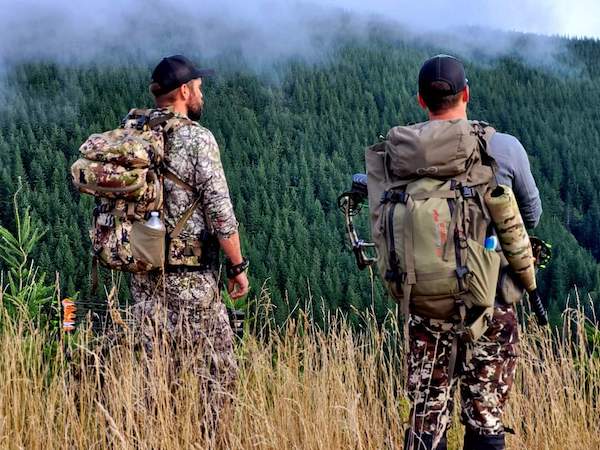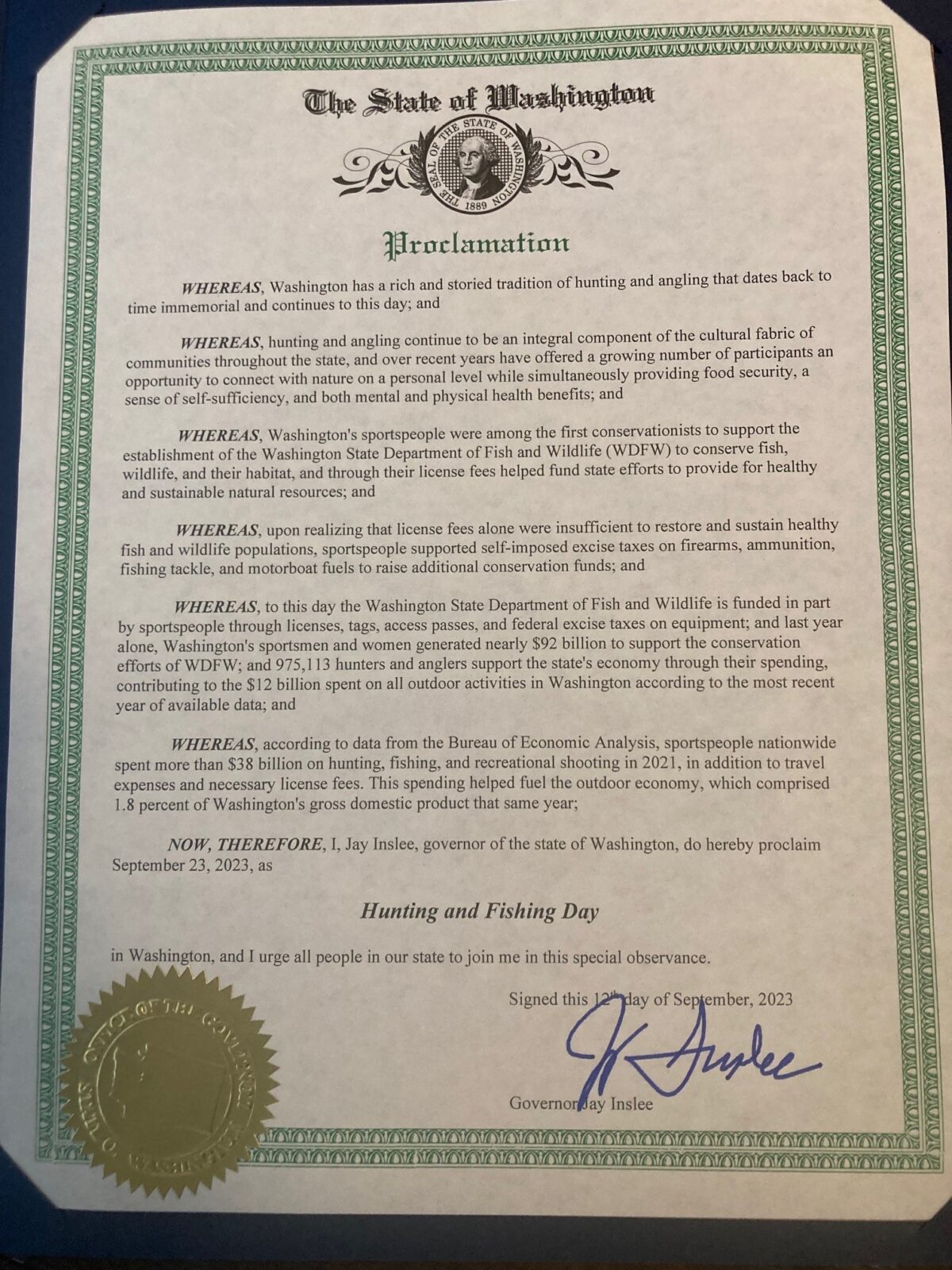
Inslee Declares This Saturday ‘Hunting And Fishing Day’ In Washington
Governor Jay Inslee is acknowledging the monumental importance of hunting and fishing to conservation in Washington in a proclamation he signed ahead of tomorrow’s national day of recognition for the beloved ways of life.
He declared Saturday, September 23, Hunting and Fishing Day in the Evergreen State, “and I urge all people in our state to join me in this special observance.”

Inslee’s fanfare will raise eyebrows among those suspicious about what his recent years’ Fish and Wildlife Commission appointments are up to – and potentially undercut the arguments of some who are trying to devalue sportsmen’s contributions – but the ceremonial proclamation was requested by the Congressional Sportsmen’s Foundation.
“It’s great to see Governor Inslee recognizing the monumental importance of hunting and fishing to conservation at a time when there are ongoing efforts by anti-hunting interests to downplay it,” stated CSF’s Keely Hopkins. “The Evergreen State’s 975,000+ hunters and anglers have long played a critical role in science-based management.”
He previously signed similar declarations in at least 2016, 2018, 2019 and 2022, and this latest one comes as young guns head out on Saturday in Western Washington for a special early crack at ducks and geese, High Buck hunters and archers scour the heights and woods and fields for bucks, and anglers fish for Chinook and coho from Puget Sound to the Lower Columbia to Tri-Cities.
“… (To) this day, the Washington State Department of Fish and Wildlife is funded in part by sportspeople through licenses, tags, access passes, and federal excise taxes on equipment; and last year alone, Washington’s sportsmen and women generated $92 billion to support the conservation efforts of WDFW; and 975,113 hunters and anglers support the state’s economy through their spending, contributing to the $12 billion spent on all outdoor activities in Washington according to the most recent year of available data,” reads a section of the proclamation the governor signed earlier this month.
Inslee also recognizes that “Washington has a rich and storied tradition of hunting and angling that dates back to time immemorial and continues to this day” and “hunting and angling continue to be an integral component of the cultural fabric of communities throughout the state, and over recent years have offered a growing number of participants an opportunity to connect with nature on a personal level while simultaneously providing food security, a sense of self-sufficiency, and both mental and physical health benefits.”

And he acknowledges “Washington’s sportspeople were among the first conservationists to support the establishment of (WDFW) to conserve fish, wildlife, and their habitat, and through their license fees helped fund state efforts to provide for healthy and sustainable natural resources” and that “upon realizing that license fees alone were insufficient to restore and sustain healthy fish and wildlife populations, sportspeople supported self-imposed excise taxes on firearms, ammunition, fishing tackle, and motorboat fuels to raise additional conservation funds.”
Those excise taxes came out of Congress – 1937’s Pittman-Robertson Act, 1950’s Dingell-Johnson Act and 1984’s Wallop-Breaux Amendment – and essentially harness the diesel-power pulling strength of the sportsmen’s community towards the greater good for not just game species but all fish and wildlife. The rest of society largely contributes passively or with relatively less direction.
Over 85 years, Pittman-Robertson alone through last year had contributed $22.5 billion to the states’ wildlife agencies for conservation, management and related activities, including for acquiring wildlife areas such as one of the very first created in Washington, the Sinlahekin, which not only supports hunting and fishing, but “bird watching, wildlife watching, hiking, horseback riding, trapping and camping.”
(It should also be noted – and can never be stated enough – that state and federal law requires fishing and hunting license revenues to only be used for fish and wildlife management, not raided for the general fund or go to other nonfish- and wildlife-related uses.)
National Hunting and Fishing Day, which always falls on the fourth Saturday of September, was passed by Congress in 1971 and first proclaimed by President Nixon in 1972, making this the 51st edition.
As part of its annual celebrations, WDFW is teaming up with the Kalispel Tribe on September 30 for a free day of events at Camp Cowles on Diamond Lake north of Spokane. Plans call for “educational displays and hands-on activities including trout fishing, fly tying, rod and reel casting practice, flint knapping, making plaster animal track casts, fish prints, demonstrations by invasive mussel-detecting dogs, a ‘back country’ camp featuring horses and mules, and shooting Department-owned archery equipment, pellet guns, .22 rifles, and 20-gauge shotguns.”
